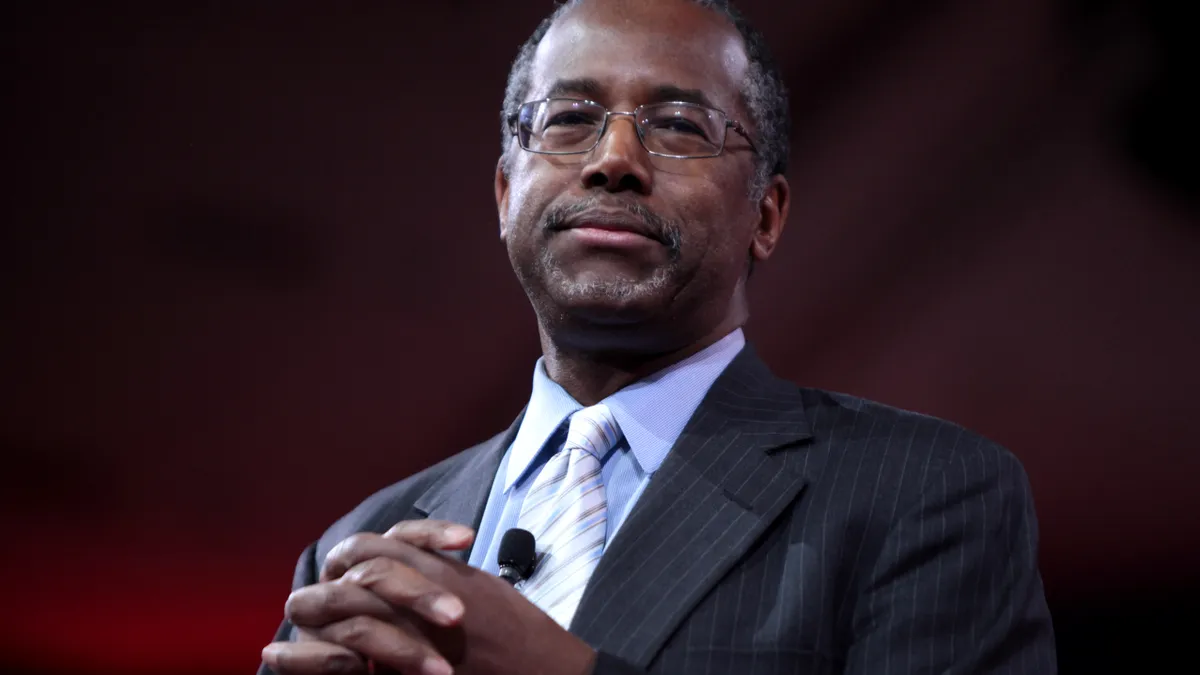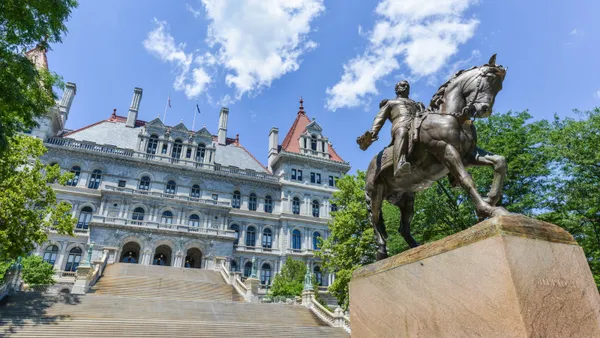Dive Brief:
UPDATE: The Senate voted 58-41 on Thursday to approve Ben Carson as secretary of the Department of Housing and Urban Development, according to The New York Times, which noted that although Carson lacks government experience, his nomination faced less resistance than some of President Donald Trump's other cabinet picks. The vote followed approval by the Senate Banking, Housing and Urban Affairs Committee on Jan. 24.
-
During his Senate confirmation hearing on Jan. 12, Ben Carson, President Donald Trump’s pick to lead the Department of Housing and Urban Development, stressed private-sector investment and the involvement of community groups in addressing the country’s affordable housing crisis, according to The Washington Post.
-
Carson appeared before the Senate Banking, Housing and Urban Affairs Committee, citing his upbringing in substandard housing in a poor area of Detroit.
-
In response to concerns over his lack of a background in housing policy or governance, the Post reported, Carson said he’d begin his role by talking with HUD employees and those involved with housing in communities nationwide.
Dive Insight:
The hearing gave government officials and the public a better idea of how Carson will likely approach housing policy — an area in which he has been criticized for having no formal experience — if confirmed. Senators leading the questioning cited the retired neurosurgeon and one-time presidential candidate’s limited record on the topic, which includes a July 2015 op-ed published in The Washington Times eschewing government-backed, top-down housing initiatives in favor of community-oriented approaches.
The hearing occurred just a few days after outgoing HUD Secretary Julián Castro called on the department to embolden its approach to affordable housing as increasing mortgage rates, tightening inventory and rising prices make homeownership difficult to attain, especially for low-to-moderate income households. He noted that more than 8 million low-income renter households seeking housing in the private market, without government assistance, spend more than half of their income on sub-par housing.
On Jan. 9, the Federal Housing Administration, a unit of HUD, announced plans to cut annual mortgage insurance premiums in response to improvements in the economy along with a tight lending environment and rising mortgage rates. Industry observers have said the move could loosen credit conditions, offsetting the recent mortgage rate increases and helping more people, particularly low-income and first-time buyer households, afford homeownership.
However, as one of his first acts as president, Donald Trump signed an executive action on Jan. 20 suspending the premium reduction indefinitely. The National Association of Realtors said the move could shut up to 40,000 buyers out of the housing market and result in higher borrowing costs for hundreds of thousands more. The move is said to have been made with the continued health of the Mutual Mortgage Insurance Fund in mind.
Critics of the original FHA fee reduction said it increases government involvement in the housing market unnecessarily, making it difficult for private-sector lenders to compete, according to Politico. Castro said the 25-basis-point cut will save homeowners $500 annually.














